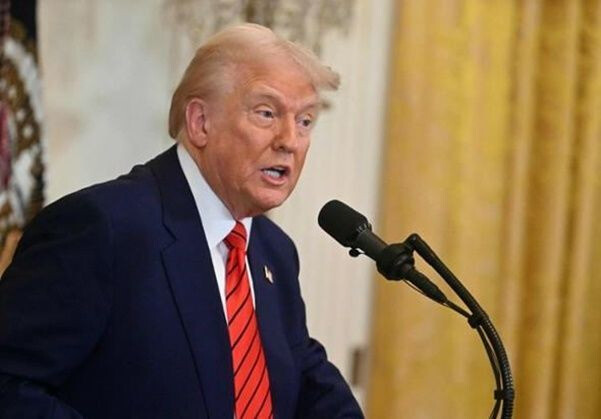
U.S. President Donald Trump singled out South Korea as a prime example of an ally that maintains high tariffs while receiving U.S. military aid. He also insisted that the CHIPS Act, which provides subsidies to companies like Samsung Electronics and SK Hynix, should be repealed. This marks a shift in Trump's focus from Ukraine, China, and North America to directly targeting South Korea. Amidst the political turmoil following the 12.3 military coup and impeachment proceedings, there are growing concerns that South Korea will be vulnerable to U.S. pressure due to a lack of effective national leadership.
In a joint address to the U.S. Congress on April 4 (local time) in Washington D.C., President Trump stated, "South Korea's average tariffs are four times higher (than the U.S.). This is happening despite our significant military and other forms of assistance. This is what our allies are doing." After pointing out high tariffs in countries like India, Trump warned, "This system is unfair. Mutual tariffs will take effect on April 2nd."
President Trump also criticized the CHIPS Act, enacted during the previous Biden administration, saying, "The CHIPS Act and everything else left should be eliminated. We need to reduce the debt with that money." He emphasized, "We don't need to give them (semiconductor companies) money. They will come to invest because they won't have to pay tariffs if they build factories in the U.S." He reiterated his argument that investments can be attracted through tariffs without subsidies. With Samsung Electronics and SK Hynix set to receive $4.75 billion (approximately 6.93 trillion KRW) and $458 million (approximately 670 billion KRW) in subsidies from the U.S. government, respectively, Trump's challenge to the subsidies themselves raises doubts about their actual disbursement. Especially after TSMC's $100 billion (approximately 145 trillion KRW) investment in the U.S., which puts Korean semiconductor companies at a disadvantage in the U.S. market, this situation is seen as further exacerbating their challenges.
On the same day, President Trump mentioned, "We are building a massive natural gas pipeline in Alaska, one of the largest in the world. Japan, South Korea, and other countries want to be our partners, investing trillions of dollars each." This statement is interpreted as putting pressure on South Korea to invest in a large-scale project that requires careful consideration of its economic feasibility.
[Copyright (c) Global Economic Times. All Rights Reserved.]






























